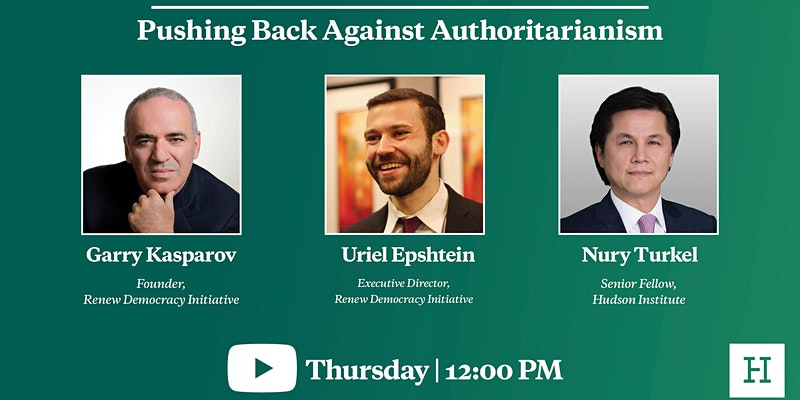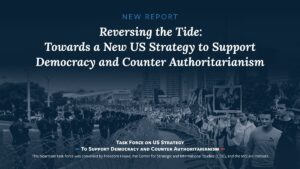 Three decades ago, after the Berlin Wall fell and communism collapsed in the Soviet Union, the question of which model was prevailing wouldn’t even have seemed relevant. Democracy’s rise seemed inevitable. In the years since, though, the authoritarian model has become resurgent. China openly presents its economic power as a sign that the ruthless efficiency of autocracy is superior to the messiness of democracy, The Wall Street Journal’s Gerald F. Seib writes:
Three decades ago, after the Berlin Wall fell and communism collapsed in the Soviet Union, the question of which model was prevailing wouldn’t even have seemed relevant. Democracy’s rise seemed inevitable. In the years since, though, the authoritarian model has become resurgent. China openly presents its economic power as a sign that the ruthless efficiency of autocracy is superior to the messiness of democracy, The Wall Street Journal’s Gerald F. Seib writes:
U.S. officials say the democracy summit will be a chance to turn those problems into an asset, by underscoring that democracies deal with their problems transparently, rather than suppressing them with an iron fist. “Democracies by their nature are constant works in progress,” said one official involved in summit planning. “We are always striving to be a more perfect union. The difference between us and so many other countries is that we do it in full daylight.”
Yet there is another problem, Seibe adds. Democracies have turned inward, with a flagging desire to engage in the world’s hot spots.
An emerging rivalry between authoritarian and democratic regimes provides a new breeding ground for future conflicts, and NATO and its Allies must be prepared to defend their shared values and norms, according to a new book. 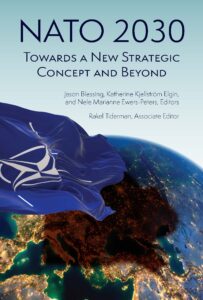 NATO has refocused on its commitment to democratic rules and principles. However, multiple member states have recently called into question these democratic foundations, say the editors of NATO 2030: Towards A New Strategic Concept and Beyond.
NATO has refocused on its commitment to democratic rules and principles. However, multiple member states have recently called into question these democratic foundations, say the editors of NATO 2030: Towards A New Strategic Concept and Beyond.
“Allies such as Hungary, Poland, Turkey, and the United States have received increasing attention because of their unilateral and nationalist foreign policy behavior, questionable partnerships, and outspoken criticisms of democratic values within NATO,” they add. “The rise of nationalism has also triggered a wave of democratic backsliding and intra-alliance tensions that challenge cohesion and threaten the overall strength, credibility, and accountability of the Alliance.”
Does the US have a strategy for confronting the authoritarian resurgence?
The Biden Administration’s March 2021 Interim National Security Strategy Guidance contends that “we face a world of rising nationalism, receding democracy, growing rivalry with China, Russia, and other authoritarian states, and a technological revolution that is reshaping every aspect of our lives.”
“The most effective way for America to out-compete a more assertive and authoritarian China over the long-term is to invest in our people, our economy, and our democracy,” it adds.
Similarly, the January 2018 National Defense Strategy states: “It is increasingly clear that China and Russia want to shape a world consistent with their authoritarian model – gaining veto authority over other nations’ economic, diplomatic, and security decisions….”
But the administration’s Interim National Security Guidance is “heavy on aspiration and ideology and light on crisp directions” regarding strategy, says a leading analyst.
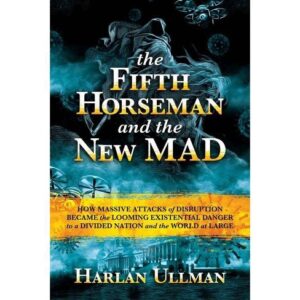 The great Chinese general and philosopher Sun Tzu advised several millennia ago that the best strategy was to win without fighting. Next best was to attack the enemy’s strategy. The worst was to allow aspirations, process and tactics to replace strategy, notes Harlan Ullman, Ph.D, senior adviser at Washington, D.C.’s Atlantic Council and the author of “The Fifth Horseman and the New MAD: How Massive Attacks of Disruption Became the Looming Existential Danger to a Divided Nation and that World at Large.” Fixing a failure in strategic thinking is conceptually easy but politically impossible, he writes for The Hill:
The great Chinese general and philosopher Sun Tzu advised several millennia ago that the best strategy was to win without fighting. Next best was to attack the enemy’s strategy. The worst was to allow aspirations, process and tactics to replace strategy, notes Harlan Ullman, Ph.D, senior adviser at Washington, D.C.’s Atlantic Council and the author of “The Fifth Horseman and the New MAD: How Massive Attacks of Disruption Became the Looming Existential Danger to a Divided Nation and that World at Large.” Fixing a failure in strategic thinking is conceptually easy but politically impossible, he writes for The Hill:
- First, we need to attack Russian and Chinese strategies.
Ullman echoes concerns about the apparent absence of “clear-headed strategists willing to look honestly at growing world disorder and revanchist powers on the march, and what to do about it.”
Observers view the era of renewed great power competition not as a bipolar situation (like the Cold War) or a unipolar situation (like the post-Cold War era), but one characterized by renewed competition among three major world powers—the United States, China, and Russia, according to Renewed Great Power Competition, a recent report from the Congressional Research Service. Key features of the current situation include:
- renewed ideological competition, this time against 21st-century forms of authoritarianism and illiberal democracy in Russia, China, and other countries;
- the promotion by China and Russia through their state-controlled media of nationalistic historical narratives, some emphasizing assertions of prior
humiliation or victimization by Western powers, and the use of those narratives
to support revanchist or irredentist foreign policy aims.
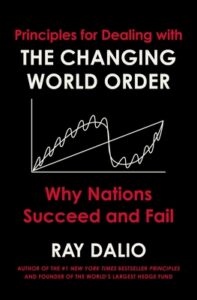 Based on what we have been seeing, the United States and China are clearly in four types of war (trade/economic war, technology war, capital war, and geopolitical war)—not intensely, but they are intensifying, analyst Ray Dalio writes in his new book, “Principles for Dealing With the Changing World Order.” They are not yet in the fifth type of war (military war). We can see from previous cases in history, in particular the 1930–1945 period, that these four types of wars precede military wars by about five to 10 years. Though the risks of military war seem relatively low, they are increasing, he cautions in an excerpt for Fortune.
Based on what we have been seeing, the United States and China are clearly in four types of war (trade/economic war, technology war, capital war, and geopolitical war)—not intensely, but they are intensifying, analyst Ray Dalio writes in his new book, “Principles for Dealing With the Changing World Order.” They are not yet in the fifth type of war (military war). We can see from previous cases in history, in particular the 1930–1945 period, that these four types of wars precede military wars by about five to 10 years. Though the risks of military war seem relatively low, they are increasing, he cautions in an excerpt for Fortune.
It is imperative to strengthen democratic resilience within NATO, say analysts Corina Rebegea and Carsten Schmiedl. Threats to transatlantic security come from outside the Alliance, but also from within, they write in “War by Other Means: Securing NATO Against Disinformation in the Coming Decade,” a contribution to NATO 2030.
 Disinformation thrives in weakened democracies where polarization, corruption, weak independent media, and low social cohesion and trust invite foreign authoritarian influence. Just as NATO played a key role in the 1990s and early 2000s in getting Central and Eastern European countries on a stable democratic course, Article 2—which calls for strengthening democratic institutions—should be brought back to the forefront of political deliberations within the Alliance, add former NED Penn Kemble fellow Rebegea and Schmiedl, Director for Democratic Resilience and Senior Program Officer, respectively, at the Center for European Policy Analysis (CEPA).
Disinformation thrives in weakened democracies where polarization, corruption, weak independent media, and low social cohesion and trust invite foreign authoritarian influence. Just as NATO played a key role in the 1990s and early 2000s in getting Central and Eastern European countries on a stable democratic course, Article 2—which calls for strengthening democratic institutions—should be brought back to the forefront of political deliberations within the Alliance, add former NED Penn Kemble fellow Rebegea and Schmiedl, Director for Democratic Resilience and Senior Program Officer, respectively, at the Center for European Policy Analysis (CEPA).
NATO membership is permanent and political leaders should accept Montenegro’s commitment to that commitment, progress towards the European Union and the country’s multi-ethnic nature, said Damon Wilson, President and CEO of the National Endowment for Democracy (NED), in an interview with Voice of America. American NGOs are committed to “strengthening democratic institutions around the world, including the Balkans,” he added.
Pushing Back Against Authoritarianism
What should the U.S. and its democratic partners do to counter the export of authoritarianism and strengthen democratic resilience? And how ideological is the threat that these two countries pose? Hudson Institute Senior Fellow Nury Turkel sits down with former world chess champion, human rights activist, and founder of the Renew Democracy Initiative (RDI) Garry Kasparov and RDI Executive Director Uriel Epshtein to discuss this pressing issue. Thursday December 9. RSVP.
